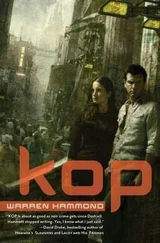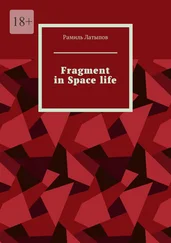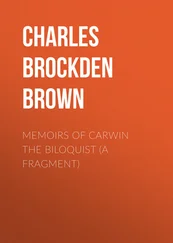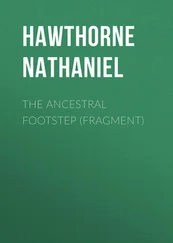Warren Fahy - Fragment
Здесь есть возможность читать онлайн «Warren Fahy - Fragment» — ознакомительный отрывок электронной книги совершенно бесплатно, а после прочтения отрывка купить полную версию. В некоторых случаях можно слушать аудио, скачать через торрент в формате fb2 и присутствует краткое содержание. Жанр: Путешествия и география, на английском языке. Описание произведения, (предисловие) а так же отзывы посетителей доступны на портале библиотеки ЛибКат.
- Название:Fragment
- Автор:
- Жанр:
- Год:неизвестен
- ISBN:нет данных
- Рейтинг книги:5 / 5. Голосов: 1
-
Избранное:Добавить в избранное
- Отзывы:
-
Ваша оценка:
- 100
- 1
- 2
- 3
- 4
- 5
Fragment: краткое содержание, описание и аннотация
Предлагаем к чтению аннотацию, описание, краткое содержание или предисловие (зависит от того, что написал сам автор книги «Fragment»). Если вы не нашли необходимую информацию о книге — напишите в комментариях, мы постараемся отыскать её.
Fragment — читать онлайн ознакомительный отрывок
Ниже представлен текст книги, разбитый по страницам. Система сохранения места последней прочитанной страницы, позволяет с удобством читать онлайн бесплатно книгу «Fragment», без необходимости каждый раз заново искать на чём Вы остановились. Поставьте закладку, и сможете в любой момент перейти на страницу, на которой закончили чтение.
Интервал:
Закладка:
She unsealed the far hatch and stepped into the deserted Section Two.
For the past three days the scientists had occasionally grabbed a nook in this section to catch some sleep as NASA technicians set up the rest of the lab.
She had heard there were bunk beds in the newly arrived Section Three, but it was swarming with technicians now. They were no doubt busy getting the electrical and computer systems up and running.
The air in Section Two smelled of new plastic, packing materials, and the ozone of electronics. Junk littered the floor: coils of cable and hastily opened boxes, torn plastic bags, broken Styrofoam molds, cable twists, box openers, and other detritus awaiting disposal. Right now any flat surface beckoned, so she climbed atop one of the long specimen chambers, similar to the trough in Section One, which was the only surface free of lab junk.
Lying on her back, using a plastic bag stuffed with packing peanuts for a pillow and a big plastic bag for a sleeping bag, Nell gazed at the starry sky through the window curving overhead. A few fireflylike bugs streaked by like meteors. For a fleeting moment she thought she saw a face looking down at her with multicolored eyes before sleep carried her away insistently.
SEPTEMBER 4
Midnight
Thatcher Redmond found thebutton on his armrest and pinged the stewardess.
He smiled craggily when the young Asian woman appeared. “May I have a few bags of peanuts? Not the warm nuts, but the bags?” he asked her.
“Surely. Let me get some for you, sir.”
Although she was pretty, Thatcher turned away in irritation. This whole last-minute trip to Phoenix had filled him with a grating sense of panic. And now, with his mission accomplished, just when he thought he could finally put it all behind him, they had been sitting on the tarmac for six unbearable hours as some Keystone Kops series of fuckups kept them stranded at the airport. He didn’t like the idea of being recognized. And guessing at the reason for the delay was toying with his sanity.
His hair flowed down in distinctive muttonchops that curved up to join a thick mustache. This red W of facial hair was Thatcher Redmond’s tonsorial signature. As a celebrity professor and a public intellectual, his image was his autograph, as his agent often repeated. As a result, he could not change his look any more than he could change his name. Sometimes, lately, he had caught himself feeling a twinge of envy for his peers, who still possessed all the little freedoms of their anonymity, such as shaving their facial hair. Sometimes, but not very often…
At least he had been able to upgrade to business class on the return flight. On the flight to Phoenix earlier this afternoon, he’d been wedged between two large identical twins, who snored. They had bought window and aisle seats intentionally. Before they had fallen asleep the twins had told him they were embarking on a southwestern vacation that was to culminate in Las Vegas, Nevada, and it had irritated him to know that.
Thatcher was an accomplished gambler. Despite the fact that he was currently $327,000 in debt, the result of an improbable series of setbacks, he was convinced that he had a mathematical aptitude that verged on genius. Thatcher could almost see probabilities like a slot-machine display in his mind.
Whether or not this intuition was right more than fifty percent of the time, it had paid off enough times to seem like it was, and it had brought just enough windfalls to make betting on his intuition a secret way of life. Only recently had it become a fullblown crisis, just when his divorce from his third wife was reaching the ugly stage.
And in the middle of all of that, out of the blue, his teaching assistant from three years earlier had threatened him with a paternity suit. The harpy was actually claiming to have had his son, who was apparently now two-and-a-half years old, and she wanted to discuss marriage or a “suitable settlement” with him to provide for their love-child.
It was not a threat so much as blackmail, served warm and lovingly. In her phone call to him, Sedona had explained that she had seen him on television since his book’s astonishing rise to best-sellerdom and his subsequent ascension as the media’s favorite intellectual. In a single breath, she had complimented him on his success and attached his financial obligation to her progeny like a tick on his back.
For years, Thatcher had managed to keep his gambling strictly private and separate from his career as a professor of zoology at the Massachusetts Institute of Technology. He had gone for broke on his latest gamble, however, and had shattered all his own rules. It was a professional wager that was quite public, unlike his others, and though it had been the safest bet he had ever placed, it had paid off bigger than any other.
At the age of fifty-nine, Thatcher Redmond’s career had hit the jackpot with the recent publication of his book The Human Factor , which had won two prestigious awards, including, just twelve days ago, the coveted Tetteridge Award for Popular Science Writing.
With any luck, he would bag another trophy, the prestigious half-a-million-dollar MacArthur Genius grant, which would be announced in a few weeks. Though nominations were supposed to be confidential, he knew that his name had been dropped into the hat.
There might even be a Pulitzer in the works after that, if the MacArthur grant materialized. Thatcher was on a roll.
After years of publishing dry, unsensational papers on genetic correlations between fruit flies and related fauna, works that would never be read by anyone other than a dozen colleagues and a few hundred of his put-upon students, Thatcher had gambled that nothing would pay more richly than playing the part all non-scientists wanted scientists to play. Sincerity, or even knowledge, need not even enter into it.
Indeed, Thatcher suspected even the most sincere scientists who had been playing this game longer than he had done so with at least a little cynical self-interest, considering how rich was the prize and how easily it was obtained.
The sea of grant money, honorariums, awards, book deals, and royalties-not to mention popularity, fame, and career opportunities-was deep, warm, and inviting for the scientist willing to provide his expert opinion, especially to the government or media, and thus lend scientific backing to the cause du jour. The water was fine, and it welcomed the sincere and the insincere, the idealist and the opportunist alike. Thatcher’s only regret was that he hadn’t dived in sooner.
Since his late bloom of fame, the zoologist had found himself eagerly sought out for commentary on an astonishing range of issues and causes, and he had been enjoying the ride thoroughly. As long as he echoed the most fashionable trends in science, there was no end to the requests for appearances and sound bites.
Thatcher knew that at this moment in human history it was fashionable to decry the impact of human beings on the environment, and so he had set out to write a book that would cash in on the current trend by going so far out on that trajectory that everyone else on the catwalk would look frumpy and outmoded. And his strategy had succeeded -brilliantly.
Knowing he was exploiting a niche many of his colleagues had already colonized ahead of him, Thatcher had decided to invade at the top of the food chain. Bypassing academia, he’d gone straight for the minds of the non-scientific public. It didn’t take a biology degree to discover where the mother’s milk of his profession came from. His run might not last long, but it didn’t have to. He would get in, grab what he wanted, and get out in time to retire very comfortably in Costa Rica. He already knew the house he wanted to buy. It helped that he did not care if in the process he damaged academia or even the cause of environmentalism. In fact, after years of toiling fruitlessly in the vineyard with little or no recognition or appreciation, he got a positive thrill out of calculating that probability.
Читать дальшеИнтервал:
Закладка:
Похожие книги на «Fragment»
Представляем Вашему вниманию похожие книги на «Fragment» списком для выбора. Мы отобрали схожую по названию и смыслу литературу в надежде предоставить читателям больше вариантов отыскать новые, интересные, ещё непрочитанные произведения.
Обсуждение, отзывы о книге «Fragment» и просто собственные мнения читателей. Оставьте ваши комментарии, напишите, что Вы думаете о произведении, его смысле или главных героях. Укажите что конкретно понравилось, а что нет, и почему Вы так считаете.











